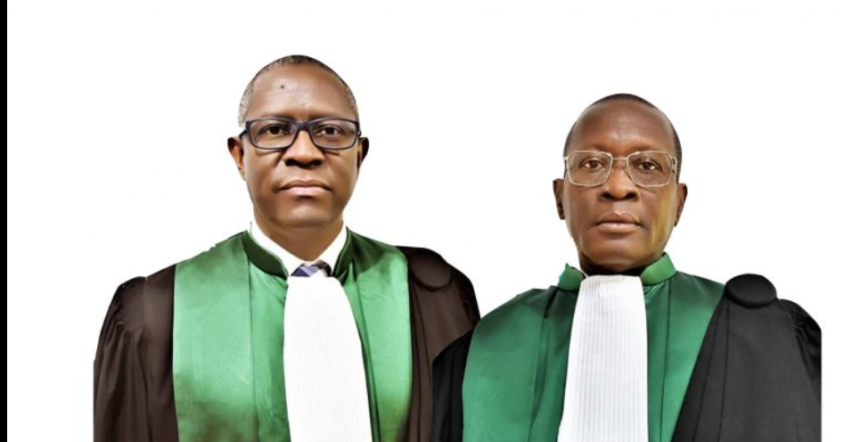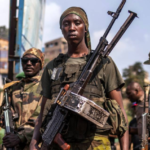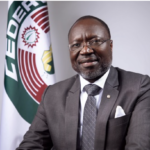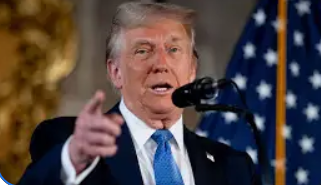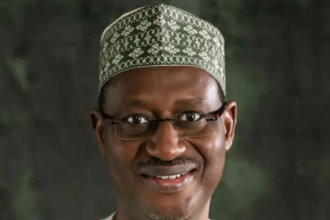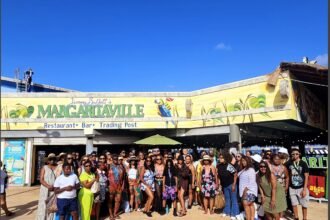By Abu Hassan
Lagos, Nigeria – The ECOWAS Court of Justice has reaffirmed its dedication to safeguarding the rights of women and children throughout West Africa, emphasizing legal frameworks, landmark rulings, and ongoing initiatives to combat gender-based violence, child marriage, and discrimination.
Speaking at a sensitization outreach held at Eko Hotel and Suites in Lagos on Tuesday, Mrs. Marie Saine, the Court’s Registrar of Judicial Records, Archives, and Publication, stressed the critical importance of protecting these rights for inclusive development and human dignity in the region.
“Women and children continue to face grave challenges ranging from gender-based violence and child marriage to discrimination and limited access to opportunities,” Saine stated. She outlined the Court’s foundation in robust legal instruments, including the African Charter on Human and Peoples’ Rights, the Maputo Protocol, the African Charter on the Rights and Welfare of the Child, and various UN treaties ratified by ECOWAS member states. Regionally, the 2015 ECOWAS Supplementary Act on Equality for Rights Between Women and Men and the ECOWAS Child Policy and Strategic Action Plan (2019–2030) provide further policy support.
Saine emphasized that individuals and NGOs have direct access to the ECOWAS Court, allowing victims of rights violations to seek justice even when national legal systems fail. “This accessibility is vital to ensuring justice reaches the most vulnerable,” she said, citing precedent-setting cases such as Hadijatou Mani Koraou v. Republic of Niger (2008) and WAVES & IHRDA (Mary Sunday) v. Nigeria (2017).
Despite progress, Saine acknowledged that enforcement remains a challenge. “Our judgments are binding, but without political will from member states, they risk becoming symbolic,” she warned.
The National Human Rights Commission of Nigeria (NHRC) echoed this sentiment, calling for stronger collaboration with the ECOWAS Court. Mr. Lucas Koyejo, Coordinator of the NHRC’s Lagos Office, representing Executive Secretary Dr. Anthony Ojukwu (SAN), emphasized the need for strategic synergy between national and regional human rights bodies.
“While the ECOWAS Court is a regional judicial institution, the NHRC is a national human rights body established in line with the Paris Principles,” Koyejo explained. He highlighted the NHRC’s role in investigating and adjudicating rights violations in Nigeria, but acknowledged similar enforcement barriers. “Many victims who win cases at the ECOWAS Court still struggle with implementation. The NHRC can play a key role in ensuring compliance at the national level,” he said.
Koyejo praised the Court for extending access to individuals and civil society groups and emphasized the importance of public awareness of available remedies. “We are not in competition. We are partners in the same fight for justice, dignity, and human rights.”
Earlier, Dr. Yaouza Ouro-Sama, Chief Registrar of the ECOWAS Court, called on Lagos stakeholders to amplify the Court’s visibility, emphasizing its importance to the people of West Africa. Acting Deputy Chief Registrar, Mr. Gaye Sowe, elaborated on the Court’s jurisdiction and the significance of the 2005 Supplementary Protocol, while Mr. Yusuf Danmadami provided guidance on filing cases, emphasizing adherence to the 2025 Practice Directions.
On Wednesday, at a separate event held as part of the outreach, the ECOWAS Court and the Lagos State Judiciary pledged closer collaboration to strengthen regional legal integration and promote the rule of law.
President of the ECOWAS Court, Justice Ricardo Claudio Monteiro Gonçalves, emphasized cooperation between national and regional courts. “Our courts are not competitors; we are collaborators in the service of human rights and legal accountability,” he said, advocating for formalized cooperation mechanisms.
Chief Judge of Lagos State, Justice Kazeem O. Alogba, hailed the forum as an opportunity for mutual enrichment of legal practices. Chief Registrar of the ECOWAS Court, Dr. Yaouza Ouro-Sama, reiterated the Court’s growing prominence in adjudicating human rights matters, clarifying that the ECOWAS Court intervenes only after domestic remedies have been exhausted.
Both events concluded with a united call for cooperation, accountability, and enhanced access to justice across West Africa, particularly for the region’s most vulnerable populations.
The new leadership of the Community Court of Justice, ECOWAS are: Honorable Justice Ricardo Claúdio Monteiro Gonçalves Elected New President of the Ecowas Court of Justice and Honorable Justice Sengu Mohamed Koroma Elected as the New Vice President
Honourable Justice Ricardo Claúdio Monteiro Gonçalves has been elected as the new President of the ECOWAS Court of Justice on Monday, October 14, 2024, for a two-year term of office, following an election by the college of five judges of the Court.
Hon. Justice Gonçalves succeeds Hon. Justice Edward Amoako Asante who led the Court for six years since assuming office on July 31, 2018.
In the same election, Hon. Justice Sengu Mohamed Koroma was elected as Vice-President, succeeding Hon Justice Gberi-bè Ouattara.


